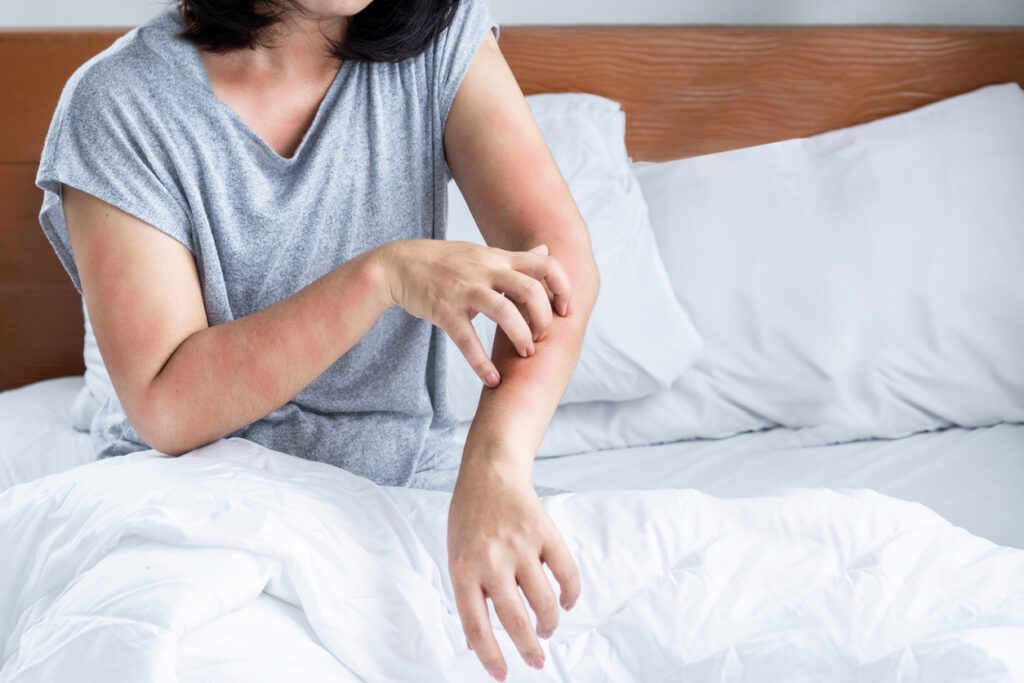Orismilast demonstrated early itch reduction in adults with moderate-to-severe atopic dermatitis (AD), according to a phase 2b study presented at the 2024 European Academy of Dermatology and Venereology (EADV) Congress in Amsterdam.
Orismilast is a potent selective phosphodiesterase 4 (PDE4)-B and -D inhibitor under development by Union therapeutics. The company is developing orismilast as an oral treatment for AD, hidradenitis suppurative , psoriasis and ulcerative colitis.
In the 16-week, double-blinded, placebo-controlled, study, 233 patients were randomized (1:1:1:1) and received orismilast 20, 30, 40 mg, or placebo, twice daily. Mean Eczema Area and Severity Index (EASI) at baseline was 23. Significantly more patients achieved Investigator’s Global Assessment (IGA) 0/1 responses at Week 16 in orismilast 20 (n=58), 30 (n=61), and 40 mg (n=59) groups, compared to placebo (n=55) (26.3%, 24.3%, 30.9%, and 9.5%, respectively) All active arms demonstrated a significant ≥4-point reduction in itch Numeric Rating Scale (NRS) at Week 2 compared to placebo.
Similarly, Patient Global Impression of Change of “very much improved” was significant in active arms compared to placebo at Week 16. Mean percentage changes in EASI at Week 16 were -55.1%, – 52.2%, -61.4%, and -50.4%, in orismilast 20, 30, 40 mg and placebo groups, respectively, the study showed.
In a subgroup analysis of patients with baseline EASI >21, separation from placebo was increased in the 20mg and 40mg arms as patients on placebo achieving EASI75 and EASI90 were 50% and 67% lower in the severe patients compared to the full population.
Through Week 16, percentages of patients experiencing any Treatment Emergent Adverse Event (TEAE) were orismilast 20 mg, 76%; 30 mg, 79%; 40 mg, 86%; placebo, 64%.
Infection rates were lower in the orismilast groups compared to placebo groups. The most common TEAEs were diarrhea, nausea, and headache, mainly seen within the first month, mostly mild in severity, with few leading to treatment discontinuation.
“Despite the current developments of new treatments in AD, there is a clear need for safe and efficacious oral treatments. Impact on patients’ experience of itch and pain along with lesional improvements are key to determine the relevance of a treatment”, says Eric Simpson, MD, MCR, Professor of Dermatology at Oregon Health & Science University in Portland, OR, in a news release. “I am excited to present the results from the Phase 2b ADESOS study…showing that orismilast offers the promise as a novel treatment option in AD with early impact on patients’ burden of disease, including significant itch reduction from 1 week of treatment.”


